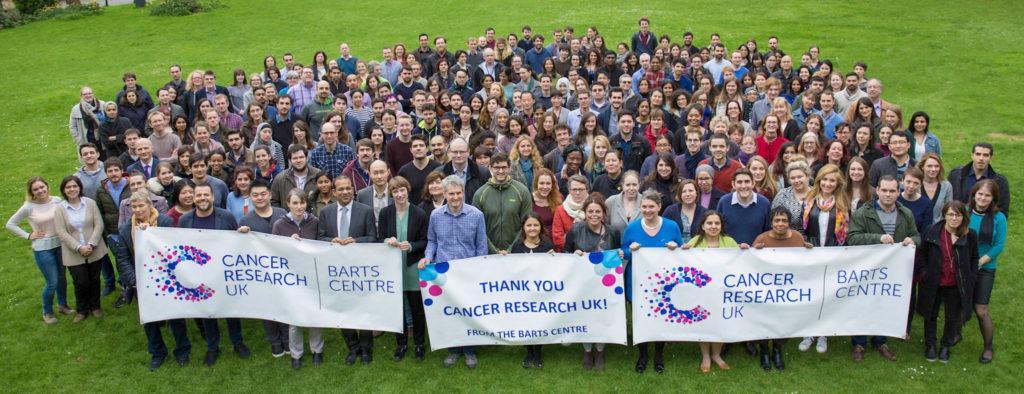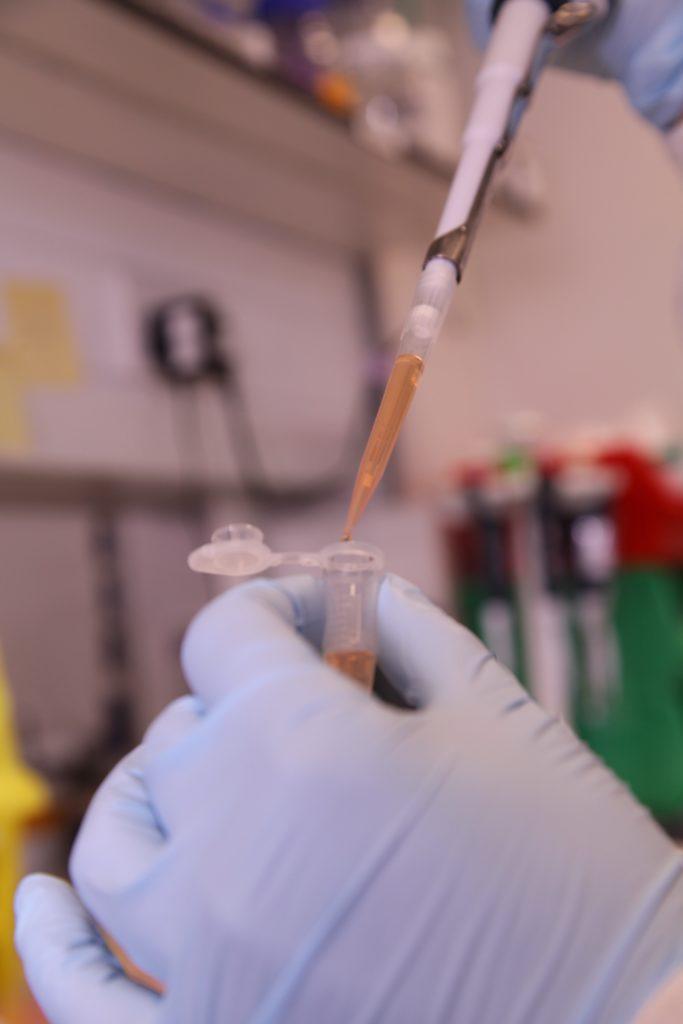CRUK Barts Centre key partner in new £14m CRUK City of London Centre
We are delighted to announce that researchers from the Cancer Research UK (CRUK) Barts Centre will play a leading role in the new Cancer Biotherapeutics Hub launched by CRUK - The 'CRUK City of London Centre’. The new centre will bring together world-leading cancer researchers from across London - CRUK Barts Centre, UCL, KCL and the Francis Crick Institute.
With a new £14 million investment from CRUK, the city of London will be transformed into a world-leading hub for cancer biotherapeutics research and treatment, bringing together cross-disciplinary, translational and clinical expertise from each partner institution.

'A hugely exciting time for personalised medicine'
Our Director, Prof Nicholas Lemoine, said:
The CRUK City of London Centre has the potential to become a world-leading centre for the development of new biological therapies for cancer, as it brings together expertise at Queen Mary, UCL, KCL and the Crick. This is a hugely exciting time for personalised medicine based on our growing understanding of tumour evolution, and the combined capability of the partner universities and hospitals in the CRUK City of London Centre will put us at the leading edge of this field.
Biotherapeutics is a pioneering field in cancer research that utilises or manipulates the biological processes of living cells to produce treatments. For example, immunotherapy harnesses the power of the body’s immune system to fight cancer, and has transformed our ability to treat some cancer types.
Dr Iain Foulkes, Cancer Research UK’s executive director of research and innovation, said: "Our investment represents a major vote of confidence in London’s place at the heart of global biomedical research and is predicted to bring enormous benefit to the city’s residents, businesses and hospitals."
The new initiative will promote local collaboration between universities, other research organisations, and NHS hospitals. Each partner institute will contribute their different research interests and expertise in different tumour sites, facilitating the delivery of CRUK's strategic objectives in translational research.
Transforming cancer care
Cancer patients over large parts of the capital, including some of the most deprived areas of the city, will have the opportunity to take part in pioneering research as part of their treatment. Around 14 million people, in London and other areas of the country, will be set to have access to the very latest innovations in biological cancer therapies.
Professor Charles Swanton, CRUK’s chief clinician, said: "We believe that, in the future, the biotherapeutics field will transform cancer care. However, there are several research challenges still to tackle. We need to understand why some patients respond to these new treatments while others don’t, and how to identify which patients might experience harmful side effects."
Commitment to training the next cadre of cancer researchers
 A major component of the new CRUK City of London Centre is training. The Centre will be sponsoring multi-disciplinary PhD studentships that fall within its research strategy with particular emphasis on research placements/training courses to fully utilise the expertise between the Centre partners.
A major component of the new CRUK City of London Centre is training. The Centre will be sponsoring multi-disciplinary PhD studentships that fall within its research strategy with particular emphasis on research placements/training courses to fully utilise the expertise between the Centre partners.
Professor Peter Parker, centre lead at KCL, said: "Biotherapies in the form of immune interventions are revolutionising cancer treatments in cancer patients. The strategic alignment, concerted training and sharing of resources with our City of London Centre partners is crucial to allow us to exploit collectively the extensive capabilities and pioneering therapeutic approaches that King’s and our City of London Centre partners have fostered over the last 15 years."
A multi-disciplinary approach
Professor Tariq Enver, centre lead at UCL, said: "Cancer won’t be cured by a biologist or a clinician alone. We need researchers from many different disciplines to come together to tackle the disease in new and innovative ways. The Cancer Research UK City of London Centre will be a catalyst for this scientific collaboration."
The City of London Centre will gather expertise from each partner institution including specialists in imaging, clinical trials and tumour evolution. Research will span all cancer types, including a focus on childhood cancers. There has been recent progress treating children with immunotherapies and researchers hope to extend this success to even more patients so that everyone, regardless of age or cancer type, can benefit from the latest innovations in treatment.
Category: General News, Grants & Awards

No comments yet